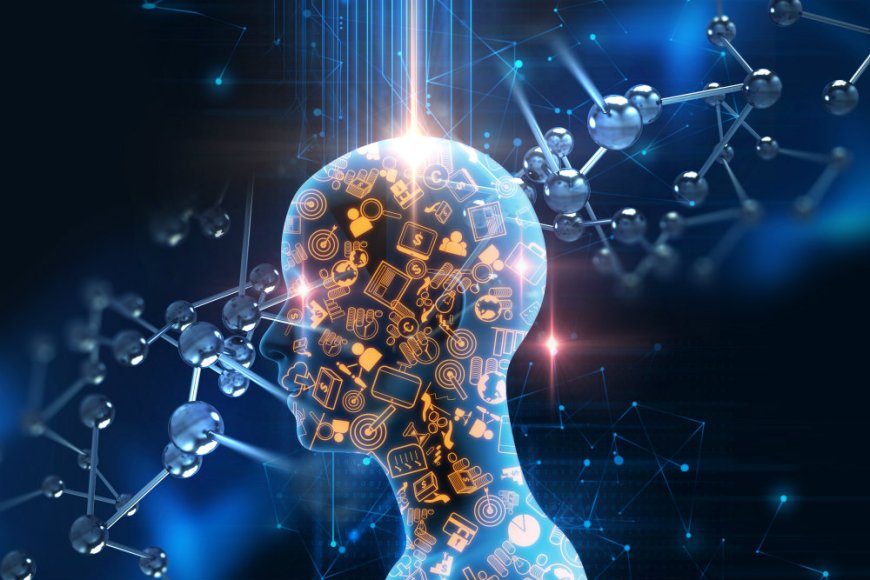Beyond Automation: How AI and Cognitive Computing Are Rewiring the World
Discover how the latest advancements in AI and cognitive computing are reshaping industries, enhancing human decision-making, and pushing the boundaries of what machines can understand and do.

Artificial Intelligence (AI) is no longer just about automating repetitive tasks—it’s rapidly evolving into a powerful force that enhances human cognition, adapts to real-time scenarios, and even makes complex decisions with nuance. Welcome to the era of cognitive computing—where machines don't just work for us, they think with us.
In 2025, AI and cognitive systems are moving past the hype and into high-impact, real-world applications—from personalized education and predictive healthcare to autonomous business processes and even emotion-aware machines.
What Exactly Is Cognitive Computing?
Unlike traditional AI, which focuses on predefined tasks and datasets, cognitive computing mimics the way humans think, reason, and learn over time. These systems interpret natural language, analyze vast amounts of data in real time, and provide context-aware solutions that evolve through experience.
Imagine a virtual assistant that not only schedules your meetings but understands your stress levels and adjusts your calendar accordingly. That’s cognitive AI in action.
Key components include:
-
Natural Language Processing (NLP)
-
Machine Learning (ML)
-
Neural Networks and Deep Learning
-
Sentiment and Emotion Analysis
-
Real-time Adaptive Decision Engines
Breakthroughs That Are Rewriting the AI Rulebook
Let’s take a look at some major advancements driving this transformation:
1. Generative AI Gets Cognitive
Tools like OpenAI’s GPT and Google’s Gemini are now being integrated with decision intelligence platforms. These AI models no longer just generate content—they can now provide strategic insights, summarize meetings, or simulate business outcomes with stunning accuracy.
2. Emotion AI in Healthcare
Hospitals are now piloting AI systems that detect early signs of depression and anxiety by analyzing speech tone, facial expressions, and behavioral patterns. Startups like Corti are even helping emergency dispatchers make faster, life-saving decisions using real-time voice analysis.
3. Cognitive Chatbots in Finance
Banks and fintech companies are deploying AI chatbots that understand customer context. For instance, India-based HDFC Bank’s EVA now handles complex customer queries, offering contextual answers, predictive advice, and even financial planning tools.
4. Cognitive Edge Computing
With the rollout of 5G and edge infrastructure, AI systems are now moving closer to the data source—be it a hospital room, a retail store, or a factory floor—allowing for ultra-fast, localized decision-making without relying on centralized data centers.
Why It Matters More Than Ever
This evolution isn't just about technological prowess—it’s about solving real problems:
-
Healthcare: AI-assisted diagnosis is reducing radiology errors and improving patient outcomes
-
Education: Adaptive learning platforms like Khan Academy’s Khanmigo personalize lessons based on student pace and mood
-
Agriculture: Smart farming tools use AI to monitor soil health, predict crop yields, and guide resource-efficient irrigation
-
Cybersecurity: Cognitive security systems detect anomalies and respond to threats before humans can react
The Ethical Frontier
As AI becomes more “human-like,” questions around ethics, bias, and privacy grow louder. Leading global frameworks like the OECD Principles on AI and UNESCO’s AI Ethics guidelines are helping shape responsible deployment.
India is also working on its National Strategy for Artificial Intelligence, focusing on inclusive innovation and transparency in AI systems.
Looking Ahead: Human + Machine
Cognitive computing isn’t about replacing humans. It’s about augmenting human abilities—speeding up decisions, eliminating bias, and enhancing creativity. Whether it’s helping a teacher understand student needs better, or enabling doctors to diagnose rare conditions faster, the symbiosis of human and machine is where the true potential lies.
As we step further into the cognitive era, success won't come from choosing between humans or machines—but from building systems where both thrive together.
What's Your Reaction?
 Like
0
Like
0
 Dislike
0
Dislike
0
 Love
0
Love
0
 Funny
0
Funny
0
 Angry
0
Angry
0
 Sad
0
Sad
0
 Wow
0
Wow
0



















































